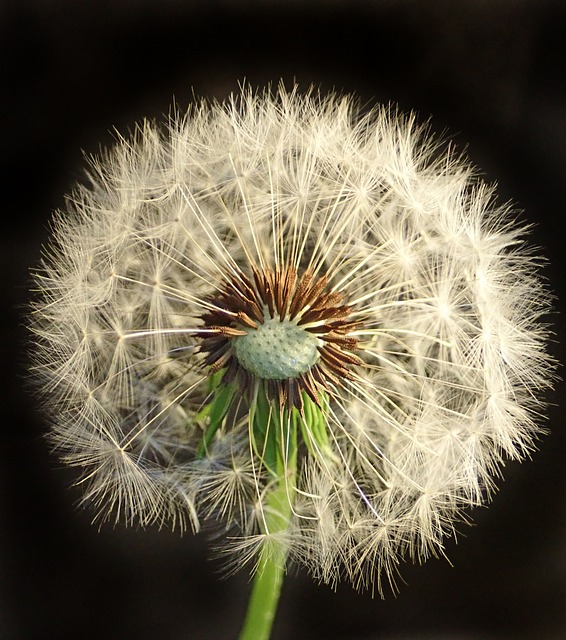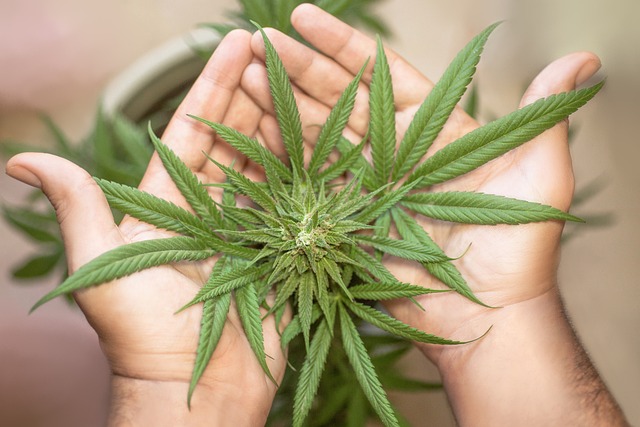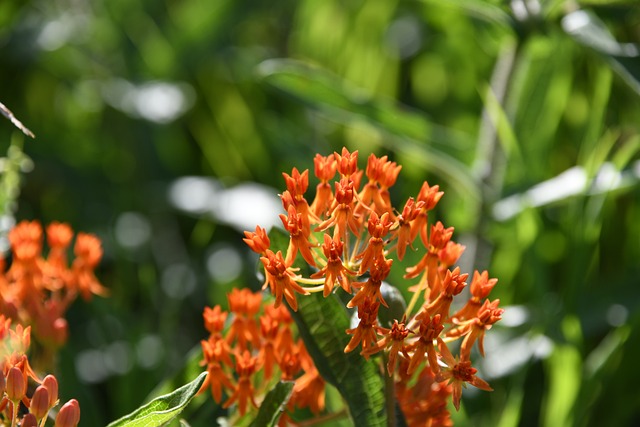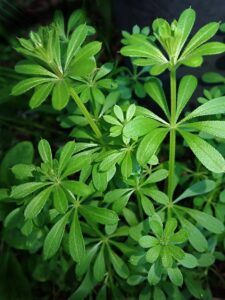
THCA flower, a non-psychoactive compound found in raw cannabis plants, has garnered attention for its significant anti-inflammatory properties. Emerging research indicates that THCA interacts with the endocannabinoid system by binding to CB2 receptors, potentially offering therapeutic benefits for individuals with chronic inflammatory conditions like arthritis and autoimmune disorders by regulating immune responses and curbing pro-inflammatory cytokine production. The anti-inflammatory effects of THCA are also attributed to its ability to inhibit enzymes responsible for the production of prostaglandins and leukotrienes, which are key players in inflammation. Ongoing scientific scrutiny examines THCA flower's potential as a natural treatment option for managing inflammation, with studies focusing on defining its therapeutic applications and elucidating the mechanisms behind its benefits. THCA flower's anti-inflammatory effects make it a promising subject of research for conditions like rheumatoid arthritis and inflammatory bowel disease. However, users are cautioned to approach its integration into wellness routines with care, considering personal dosage, potency, and consulting healthcare professionals, especially when managing existing health issues or alongside other medications. The section emphasizes the importance of sourcing from reputable providers, adhering to legal regulations, and being aware of potential side effects like dry mouth and dry eyes. It is crucial to consider the entourage effect, where THCA may interact with other substances, affecting medication efficacy. Overall, while THCA flower shows promise for its anti-inflammatory effects, a balanced understanding of its advantages and potential side effects is essential for safe and effective use.
explore the multifaceted impact of THCA (tetrahydrocannabinolic acid) flower, a non-psychoactive cannabinoid gaining attention for its anti-inflammatory properties. This article dissects the scientific underpinnings of THCA’s efficacy in inflammatory conditions, scrutinizes research on its therapeutic benefits, and addresses safety concerns to guide users on responsible consumption. Dive into the therapeutic potential and side effects of THCA flower with a focus on its anti-inflammatory effects.
- Unraveling the Anti-Inflammatory Potential of THCA Flower: A Deep Dive into Its Mechanisms
- The Role of THCA Flower in Inflammatory Disease Management: Evidence and Research Insights
- Navigating THCA Flower Dosage and Safety Considerations for Optimal Anti-Inflammatory Use
- Understanding the Therapeutic Properties and Side Effects of THCA Flower Consumption
Unraveling the Anti-Inflammatory Potential of THCA Flower: A Deep Dive into Its Mechanisms

The therapeutic properties of THCA, or tetrahydrocannabinolic acid, a non-psychoactive cannabinoid found in the raw cannabis plant, have garnered significant attention due to its anti-inflammatory potential. Extensive research has begun to unveil the mechanisms through which THCA flower exerts these effects. One of the primary pathways involves the interaction with the body’s endocannabinoid system, where THCA is believed to inhibit inflammation by binding to cannabinoid receptors, particularly CB2 receptors, thereby modulating the immune response and reducing pro-inflammatory cytokine production. This action can be particularly beneficial in conditions characterized by chronic inflammation, such as arthritis and autoimmune disorders. Furthermore, THCA’s anti-inflammatory properties have been observed to extend beyond direct receptor interaction; it may also inhibit certain enzymes involved in the production of prostaglandins and leukotrienes, which are known mediators of inflammation. These findings suggest that THCA flower could serve as a natural alternative for managing inflammatory conditions without the psychoactive effects associated with its decarboxylated form, THC. The anti-inflammatory effects of THCA continue to be an area of active research, with studies aiming to elucidate the full scope of this cannabinoid’s therapeutic potential.
The Role of THCA Flower in Inflammatory Disease Management: Evidence and Research Insights

Delta-9-tetrahydrocannabinolic acid (THCA) is a non-psychoactive cannabinoid found in the Cannabis sativa plant, and it’s gaining attention for its potential anti-inflammatory effects. Research indicates that THCA may exert significant anti-inflammatory actions through various pathways. Studies have shown that THCA can inhibit certain pro-inflammatory cytokines and enzymes involved in inflammatory responses. This suggests a potential therapeutic role for THCA flower in managing inflammatory diseases, such as rheumatoid arthritis or inflammatory bowel disease. Preclinical studies have demonstrated that THCA can modulate the activity of immune cells and reduce the production of molecules associated with inflammation and pain. Additionally, it has been observed to have a favorable safety profile at therapeutic doses, which adds to its potential for use in inflammatory disease management. The anti-inflammatory effects of THCA are thought to be mediated through the interaction with the body’s endocannabinoid system, particularly the CB2 receptors that play a key role in regulating immune responses. Ongoing research continues to elucidate the mechanisms by which THCA flower can benefit those suffering from inflammatory conditions, offering hope for new treatment modalities and complementary therapies.
Navigating THCA Flower Dosage and Safety Considerations for Optimal Anti-Inflammatory Use

When incorporating THCA flower into one’s wellness routine for its anti-inflammatory effects, it is imperative to approach dosage and safety with careful consideration. THCA, or tetrahydrocannabinolic acid, is a non-psychoactive compound found in the cannabis plant that has been studied for its potential therapeutic benefits. As with any wellness supplement, finding the right dosage tailored to individual needs is key to maximizing the anti-inflammatory effects of THCA flower while minimizing potential side effects.
Beginners should start with a low dose and gradually titrate upwards as needed, monitoring their body’s response at each increment. Factors such as body weight, tolerance, and the potency of the THCA flower can influence effective dosing. It is advisable to consult with a healthcare professional when establishing a dosage regimen, especially for those with pre-existing health conditions or those taking other medications. Safety considerations also include being aware of the source of the THCA flower, as quality and purity can vary between providers. Adherence to state and federal regulations regarding cannabis products is essential. By adhering to these dosage guidelines and safety precautions, individuals can harness the anti-inflammatory properties of THCA flower effectively and responsibly.
Understanding the Therapeutic Properties and Side Effects of THCA Flower Consumption

THCA flower, which contains Tetrahydrocannabinolic Acid, a non-psychoactive precursor to THC found in cannabis, has garnered attention for its potential therapeutic properties. Research indicates that THCA may possess anti-inflammatory effects, offering relief for conditions like arthritis without the psychoactive impact of its derivative, THC. This makes it an attractive option for those seeking pain management and anti-inflammatory benefits without the high associated with cannabinoids. Additionally, studies suggest that THCA may have a role in treating nausea and stimulating appetite, which are beneficial in therapeutic settings. While these properties are promising, consumers should be aware of potential side effects associated with THCA flower consumption. Common side effects include dry mouth and dry eyes, which are typically mild and temporary. However, THCA can also interact with certain medications, potentially altering their effectiveness, a phenomenon known as the entourage effect. It is crucial for individuals to consult with healthcare professionals before incorporating THCA flower into their wellness regimen, especially if they have underlying health conditions or are taking other medications. Understanding both the therapeutic and side effects of THCA flower consumption is essential for safe and effective use.
THCA flower, a non-psychoactive cannabinoid, has garnered attention for its promising anti-inflammatory properties. The comprehensive analysis presented underscores the potential therapeutic benefits of THCA flower in managing inflammatory conditions, as evidenced by emerging research and clinical insights. While its application shows promise, it is crucial to approach its use with careful consideration of dosage and safety measures to maximize efficacy and minimize risks. Users should be aware of potential side effects associated with THCA flower consumption, as detailed in the article. In light of these findings, THCA flower may represent a valuable addition to anti-inflammatory treatment strategies, provided it is used responsibly and under professional guidance.






